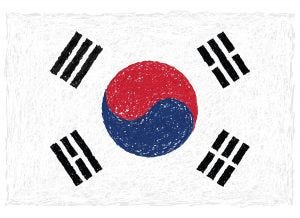
Celltrion has confirmed its third biomanufacturing plant will be constructed in Korea after assessing locations overseas. The facility will have 120,000 L of biologics capacity.
Seo Jeong-jin, chairman of Korean drugmaker Celltrion, told investors at last year’s JP Morgan Healthcare Conference that plans laid down in 2016 to build a third biomanufacturing facility at its site in Songdo, Incheon had been scrapped in favor of a much larger facility overseas.
But a year on and Celltrion has announced a U-turn.

Biosimilar maker Celltrion has confirmed its third plant will be constructed in Korea.
“Chairman Seo Jung-jin announced that Celltrion is planning to construct a third factory in Korea capable of producing 120,000 liters of drugs,” a Celltrion spokesperson told this publication. Further details have not been divulged.
Once completed the firm will boast 310,000 L of cell culture capacity. This includes 50,000 L of extra capacity currently being brought online to effectively double capacity at Celltrion’s first plant, and 90,000 L of stainless steel bioreactor systems at its second plant.
Celltrion’s marketed products include biosimilars versions of Remicade (infliximab), Rituxan (rituximab) and Herceptin (trastuzumab). The firm also operates as a contract manufacturing organization (CMO).
Korea to China
In related news, Celltrion is looking to set up a joint venture in China, Reuters reported this week.
Seo Jung-jin told reporters the firm has been in talks with several Chinese companies since last year in order to bring its products to the region.
But Celltrion is not the only Korean biosimilar developer looking to China’s burgeoning biologics market as Samsung Bioepis – a Samsung BioLogics and Biogen joint venture – has also announced plans to expand into the region through a licensing agreement with 3SBio Inc.
The deal covers several products, including Samsung Bioepis’ SB8, a biosimilar candidate referencing Roche’s Avastin (bevacizumab).
“We are very excited to expand our biosimilar business into China, where we hope to see our biosimilars play an important role in widening patient access to high-quality healthcare,” said Christopher Hansung Ko, CEO of Samsung Bioepis.
“We are confident we will achieve this goal through our partnership with 3SBio, which brings together Samsung Bioepis’ proven development platform with 3SBio’s strong commercialization platform.”
About the Author
You May Also Like

schedl_b_and_w.jpg?width=100&auto=webp&quality=80&disable=upscale)
schedl_b_and_w.jpg?width=400&auto=webp&quality=80&disable=upscale)



